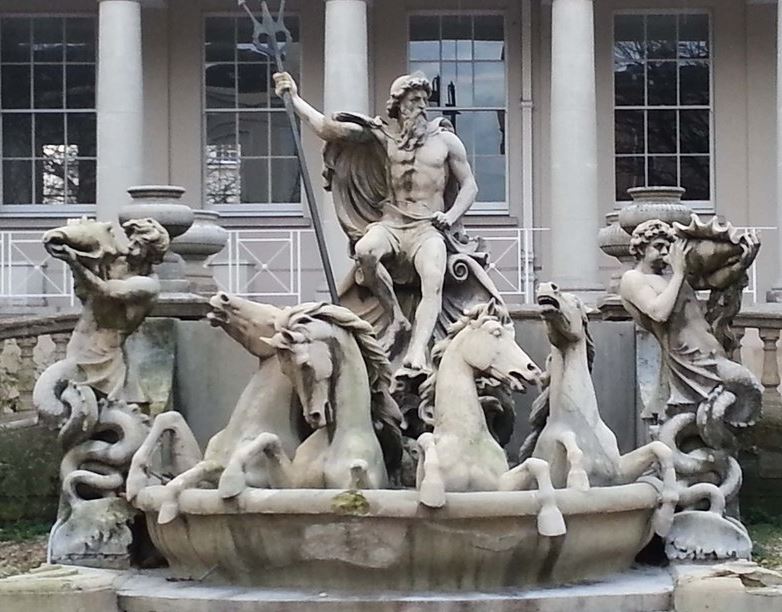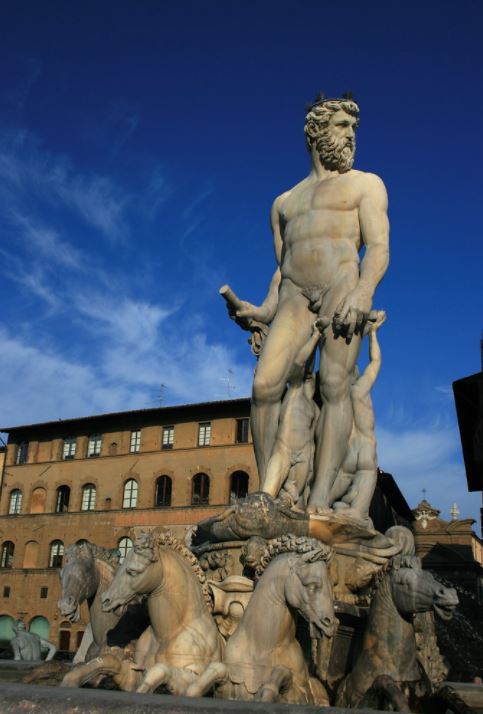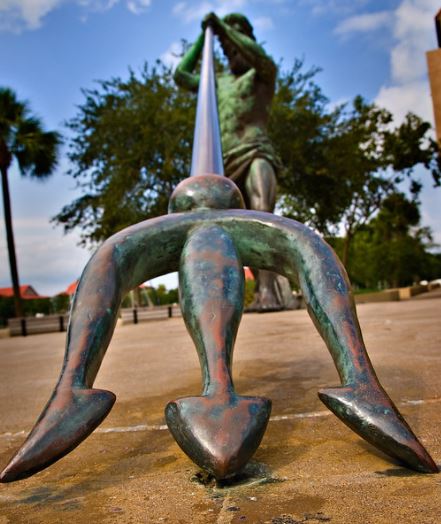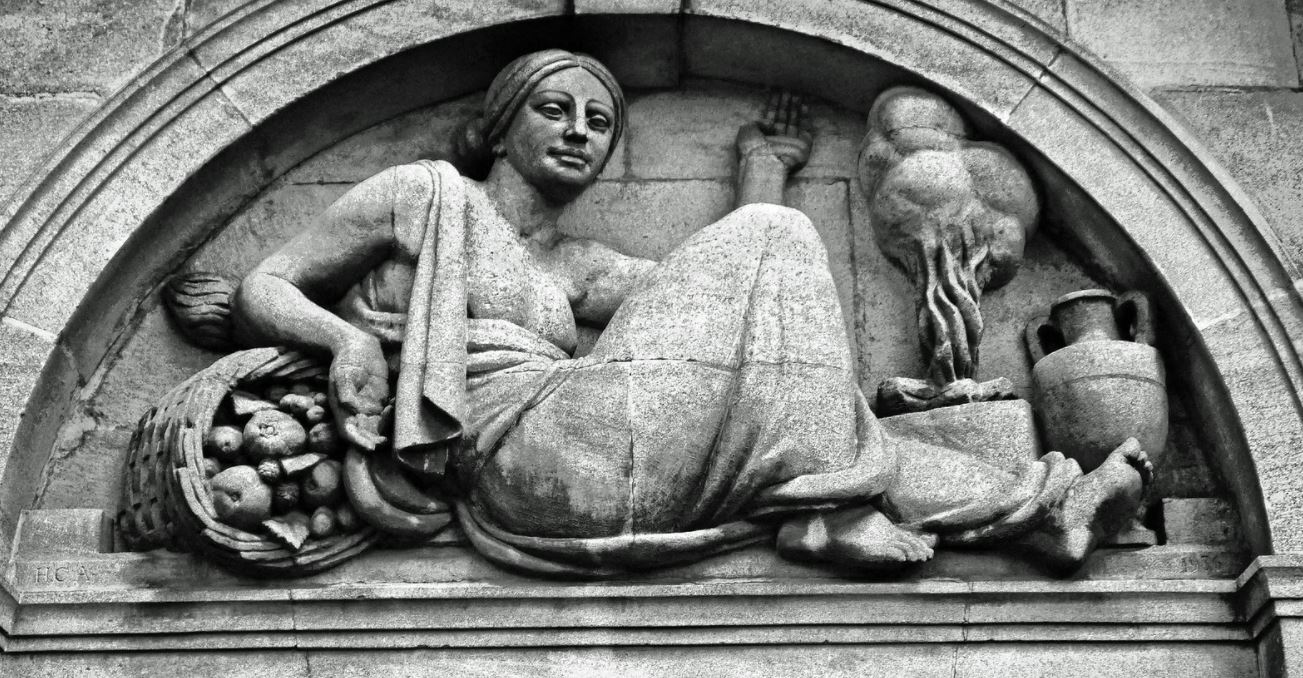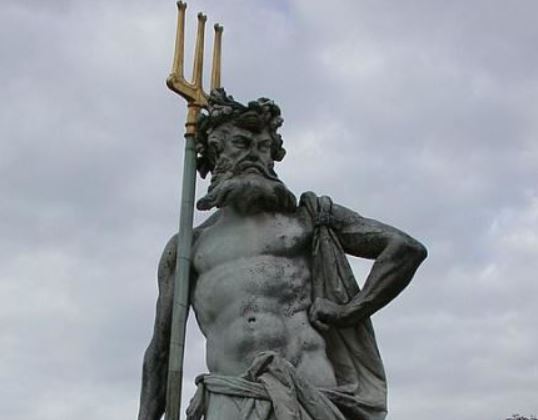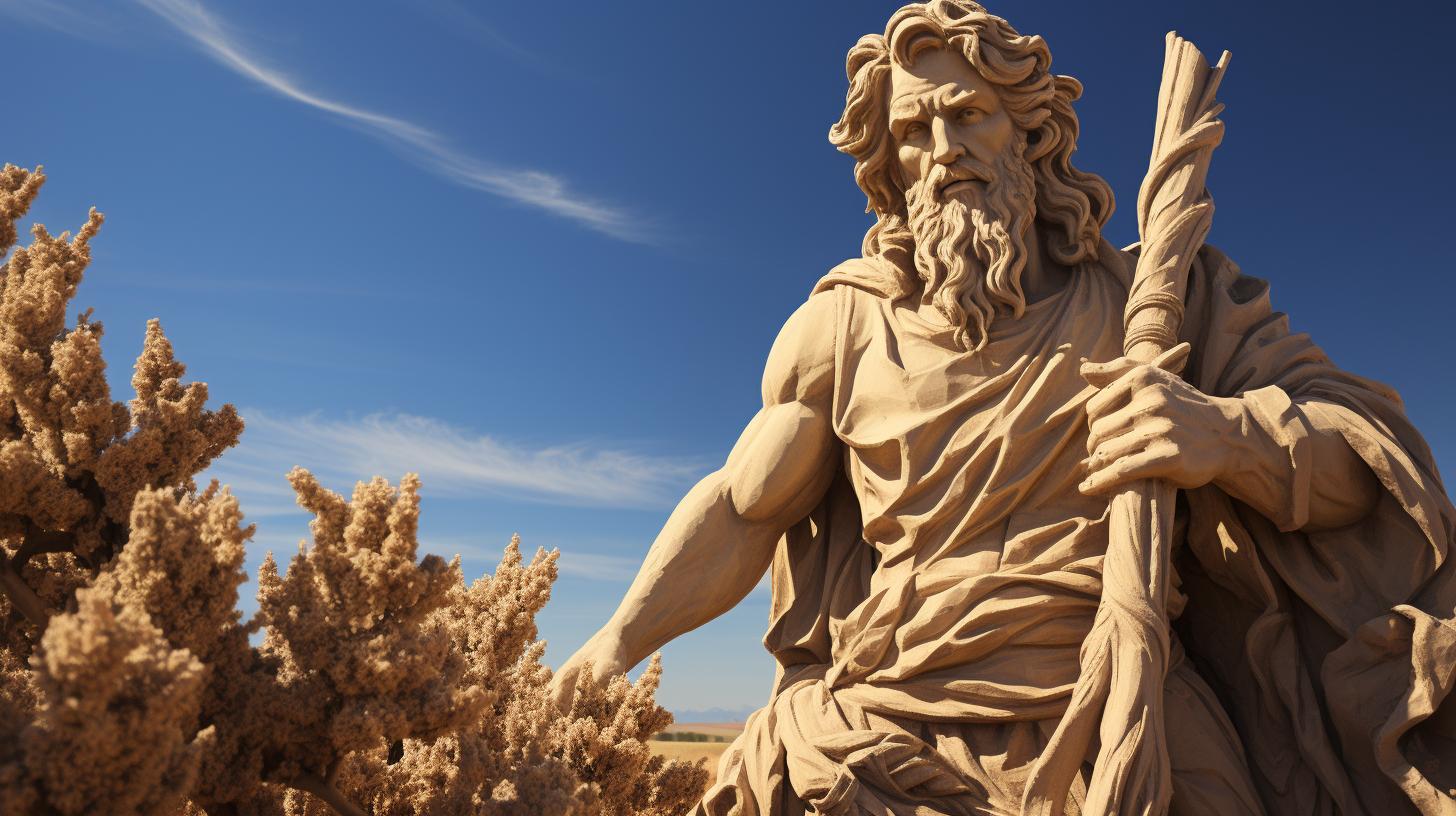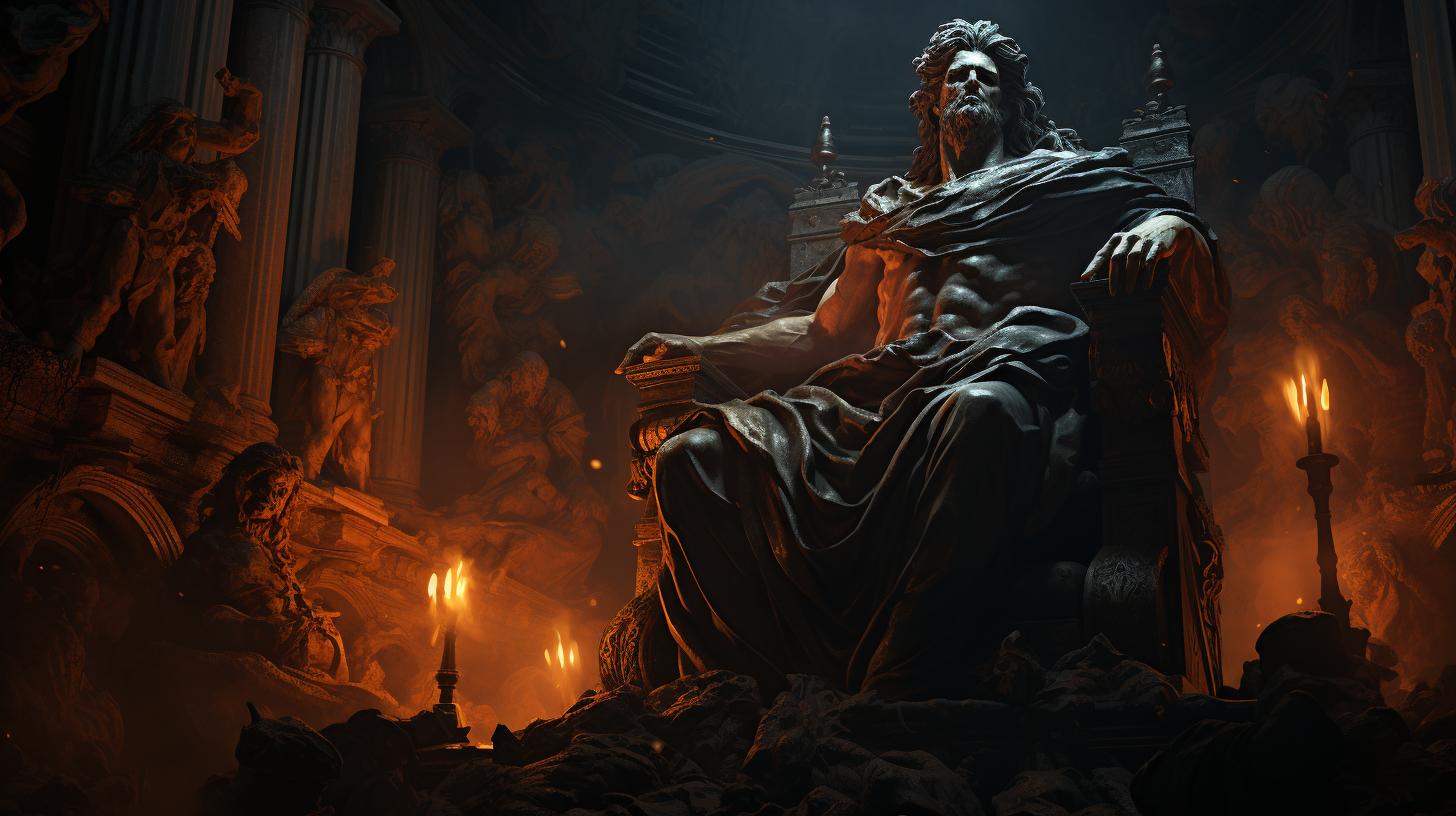Neptune, the Roman God of the Sea

For the ancient cultures in the world, the seas, oceans, and lakes were such vast and mysterious that many of them considered being a god’s work.
The sea tides and the most bigger predators were commanded by the ocean gods and it was very important to satisfy this deity before sailing away, fishing, or before performing any activity related to any water source.
The ancient Roman god of the sea that they worshipped was called Neptune.
What is Neptune the god of?
Neptune was the Roman god of the sea. It seems that his figure derived from that of the ancient Indo-European deity who presided to rivers, lakes, and fonts.
This fact is suggested by the frequency with which the name of the Roman god Neptune appears in ancient inscriptions situated beside watercourses.
Since Indo-Europeans originated from an inland region, they had no direct knowledge of the sea and would have therefore had no divinity to dedicate to it: this could be the reason why the Roman god Neptune had not always been the god of the sea, despite his waterly character.
Anyway, from a very early time, the Roman god of the sea Neptune was identified with the Greek god Poseidon, and therefore inherited most of his myths and attributes.
From Greek mythology, the Roman god Neptune also took his role of god of horses, because of a myth that described his invention, together with the roman goddess of wisdom Minerva, of the chariot. He was often portrayed holding his most important attribute, the trident.
Statue of Neptune god of water
The Roman god Neptune: Origin of the Name
The origin of the name “Neptune” is not clear, and many interpretations have been suggested.
According to some scholars, it might come from the Indo-European “neptu”, which would have meant “moist substance”.
Others suggest that it might come instead from the Indo-European root “nepots”, which would have indicated a “descendant” or “a sister’s son”: according to this interpretation, “Neptune” might mean “son of the water”.
History of the Roman god Neptune
The Roman god of the sea Neptune appeared in Italic folklore, playing a role in some peculiarly Roman myths.
One of them, for example, describes him as the divine and legendary progenitor of the Faliscans, an Italic tribe. Because of this myth, the Faliscans typically referred to themselves as “Neptunia proles”, which means “descendants of Neptune”.
Anyway, the most important myths referring to Neptune water god are of course the ones he had inherited from his Hellenic counterpart Poseidon.
Neptune Roman God Myths
According to the myths, the Roman god Neptune was a son of Saturn and Ops, and therefore a brother of the Roman god of the sky Jupiter and the Roman god of the Underworld, Pluto. He would have fought with them against the Titans holding his main weapon, the trident, which would have been forged for him by the Cyclopes.
After their victory, they would have split the Universe into three parts, so that each of them could govern one: the Roman god Neptune would have therefore become the king of the sea. He would have reigned over it for the rest of the time so that he was the subject of many other stories.
He would have been married to the goddess of the salt waters, Salacia but, like his brother Jupiter, he would have had many affairs with other females, both human and divine, and would have therefore fathered many children.
One of the most famous was surely Polyphemus, the Cyclops who was tricked and blinded by Ulysses in one of the most famous epic poems of antiquity, the Odyssey.
Neptune roman god of the sea statue
Neptune god of the sea actually played an important role in the story of Ulysses: it was him in fact who forced Ulysses to wander for years before he could finally find his way back home, as a punishment for the blinding of Polyphemus.
Here we want to focus in particular on one of Neptune’s mistresses, a human maid by the name of Cleito. Through her, in fact, the Roman god of the sea Neptune was linked to one among the ancient myths which had the wider resonance in modern times: the myth of Atlantis.
The Roman god Neptune, Cleito, and the Myth of Atlantis
The most ancient sources on the story of Atlantis are two of Plato’s dialogs, namely the Timaeus and the Critias.
According to them, Atlantis would have been an island situated not far from Europe in the Atlantic Ocean and it would have been assigned to the Roman god of the sea Neptune together with the domain over the sea at the time of the splitting of the Universe between Neptune, Jupiter, and Pluto.
One day the Roman god of the sea Neptune spotted Cleito, the daughter of Evenor and Leucippe, and fell in love with her. In the course of time, she gave him five couples of twins.
The eldest among them was Atlas, who the Roman god Neptune appointed as the king of Atlantis and of the Atlantic Ocean as well. He had been born on a mountain of Atlantis which, together with its surrounding area, was given to him as his special fief.
His brothers would have been appointed as commanders of other parts of Atlantis. According to Plato, Atlantis became more and more powerful over the years, to the point that it attacked Northern Africa and conquered a great part of it.
Atlanteans would have also tried to conquer Greece but would have at that point been rejected by the inhabitants of Athens, who would have also set free the lands that Atlanteans had occupied.
At that point, Plato says that there was a terrible earthquake, which precipitated Atlantis to the bottom of the ocean. Following Plato, the presence of Atlantis under the waters of the Atlantic would have made them muddy and unfit for navigation.
One of the pictures of Neptune the god of the sea
The Roman god of the sea Neptune powers
As the king of the sea, Neptune was considered able to produce sea storms.
Anyway, he was also thought to be able to cause natural events of earthly origin, like earthquakes.
Neptune god Symbols
As we said, the main symbol of Neptune was the trident. Let’s see its meaning in detail.
Roman god Neptune symbols: The Trident
The meaning of the trident as an attribute of the Roman god of the sea is quite evident: in fact, the trident was a common item in mariners’ life, being used for fishing.
According to some sources, the trident was also a symbol of Neptune’s power to generate earthquakes: he would in fact have produced them hitting the earth with it.
The trident: the main Neptune god symbol
Additional facts about Neptune the Roman god
Besides being associated with the Greek deity Poseidon, the Roman god Neptune was also linked to other divinities of Ancient Europe.
In particular, he was closely connected to the Etruscan god Nethuns and to the Irish deity Nechtan. Nethuns’s name appears in many important ritual objects discovered by archeologists and he surely was a figure of great importance in the Etruscan pantheon.
Nechtan was, according to the ancient Irish population, the guardian of the well from which all the watercourses of the world originated, and to which they eventually returned. Therefore, like Neptune before his identification with Poseidon, he was a river rather than a sea god.

